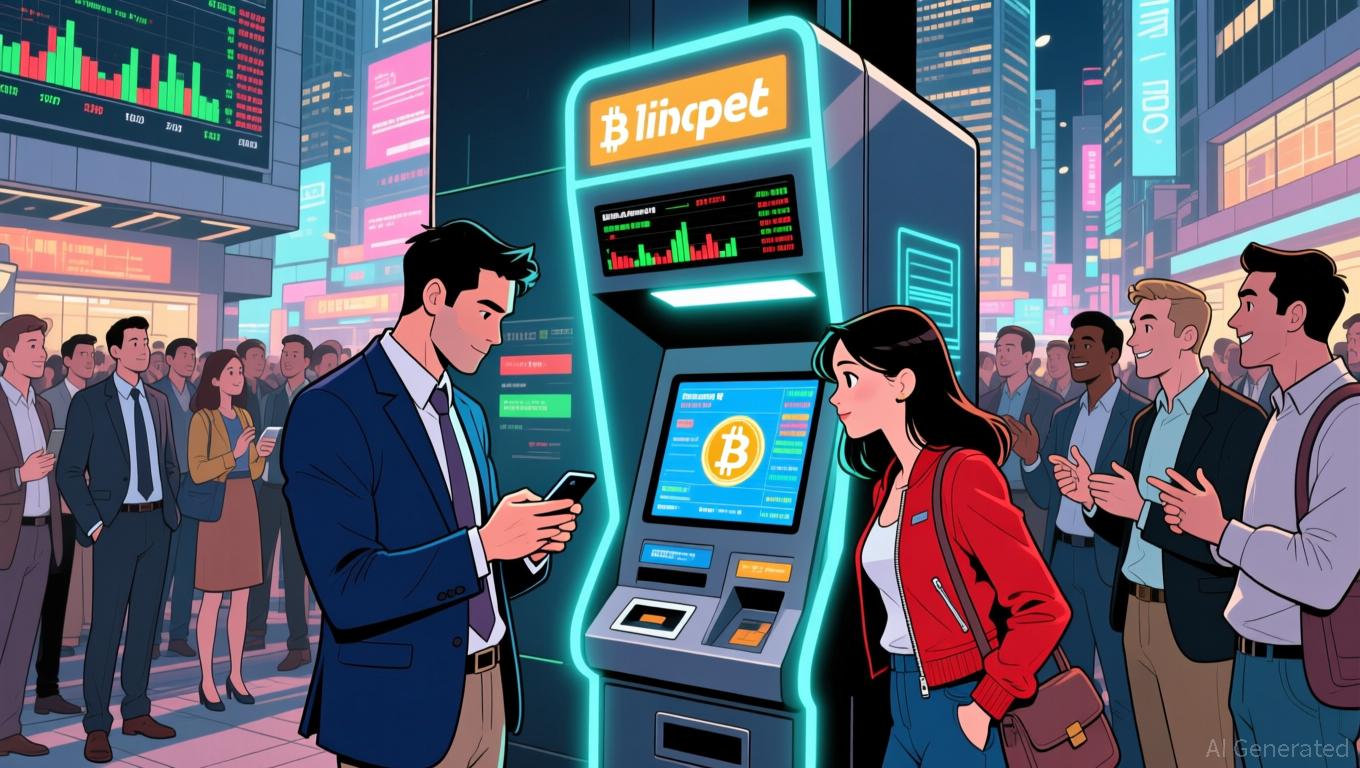Tokenized Equities Climb to $10 Billion, Putting Regulators in a Legal Gray Area
- Kraken's xStocks platform, a joint venture with Backed, surpassed $10B in transaction volume four months post-launch, tokenizing equities like Tesla and Meta . - The platform enables 24/7 trading and fractional ownership across Ethereum , Solana , BNB Chain, and Tron , with $2B in onchain activity and 45,000 holders. - Legal ambiguity persists as tokenized stocks are treated as derivatives, not direct securities, with experts warning of liquidity risks and regulatory challenges. - Kraken's cautious focus
Kraken’s xStocks platform, developed in collaboration with RWA tokenization company Backed, has exceeded $10 billion in total trading volume a little over four months since its debut, signaling a significant achievement for the tokenized equity market. The service provides digital tokens that are fully backed 1:1 by real shares of publicly listed stocks and ETFs—such as
The swift uptake of tokenized equities has ignited discussions about their legal classification. John Murillo, Chief Business Officer at fintech company B2Broker, pointed out that although xStock tokens reflect the price of the underlying securities, they do not grant actual ownership rights. "Investors possess tokens issued by intermediaries, which could provide payouts if the original shares appreciate or are sold," he explained, as
Kraken’s prudent strategy stands in contrast to rivals like Robinhood, which recently faced criticism for issuing tokens representing shares in private firms, including OpenAI. Kraken’s co-CEO Arjun Sethi labeled such moves as "terrible ideas," highlighting potential liquidity problems and regulatory hurdles, as
The xStocks approach has been likened to platforms such as Securitize, which also tokenizes shares and investment funds, as well as Robinhood’s stock token offerings in certain regions. However, Kraken’s alliance with Swiss custodian Backed Finance and its support for multiple blockchains have helped it stand out in the sector. The platform’s rapid expansion mirrors the wider growth in RWA tokenization, with blockchain analytics firms noting a 300% increase in activity over the past year, as
Although regulatory certainty is still lacking, the European Union’s MiCA regulation provides some guidance for crypto assets, but equities remain a complex area. Sethi’s perspective highlights the ongoing tension in the industry between innovation and regulatory compliance, as platforms strive to balance ease of access with investor safeguards, as
Disclaimer: The content of this article solely reflects the author's opinion and does not represent the platform in any capacity. This article is not intended to serve as a reference for making investment decisions.
You may also like
Bitcoin News Update: Hong Kong's Comeback Weighs Retail Appeal Against Cryptocurrency Dangers
- Hong Kong's economy shows recovery signs with luxury brand Lacoste opening its largest local store and Q3 GDP hitting a two-year high. - Bitcoin Depot expands into Hong Kong with 223 ATMs, leveraging regulatory clarity and SFC-licensed crypto exchanges to position the city as Asia's digital asset hub. - Institutional crypto adoption grows as Franklin Templeton launches tokenized USD funds, though global ATM fraud concerns and weak real estate markets pose risks. - Analysts remain cautious about sustainab

Strategic Shift Toward Blockchain Tokens Transforms International Financial Landscape
- Major firms like Circle , JPMorgan , and ConsumerFi are driving blockchain adoption through native tokens to modernize financial systems and boost institutional engagement. - Circle's Arc blockchain introduces a native token to replace USDC gas fees, attracting 100+ institutional partners including Goldman Sachs and Visa during its testnet phase. - JPMorgan expands JPM Coin to euros via Coinbase's Base network, enabling instant cross-chain settlements while partnering with Mastercard and B2C2 to tokenize

Brazil Fights Cryptocurrency Crime Through Licensing Requirements and Pre-Trial Asset Liquidation
- Brazil introduces crypto licensing rules and pre-trial seizure laws to combat crime and regulate its $319B market. - New framework requires VASPs to secure $2M-$17.8M capital, comply with AML/cybersecurity standards, and report stablecoin transactions. - "Anti-faction bill" enables authorities to liquidate seized crypto during investigations, targeting gangs like Comando Vermelho. - Critics warn strict rules may stifle small firms, while regulators defend alignment with traditional finance standards.

YFI Price Climbs 3.05% as Recent Gains Counteract Yearly Downtrend
- YFI surged 3.05% in 24 hours, with short-term gains offsetting a 38.46% annual decline. - Technical analysis highlights a key resistance breakout, potentially boosting buying interest despite remaining below 52-week highs. - A backtesting strategy tests long positions after 5% daily surges, evaluating profitability and risk over 2022-2025 market cycles. - Metrics like total return and win/loss ratio will assess strategy viability against buy-and-hold benchmarks.